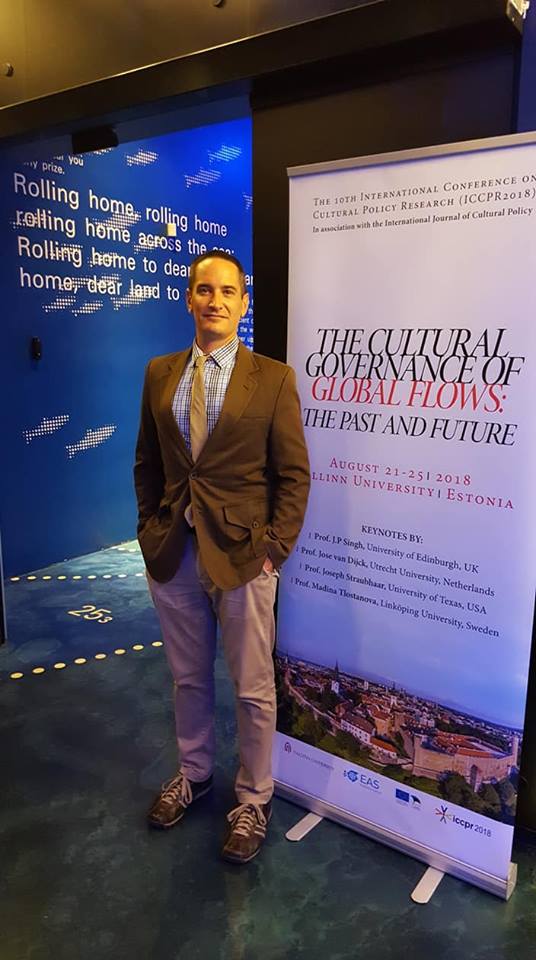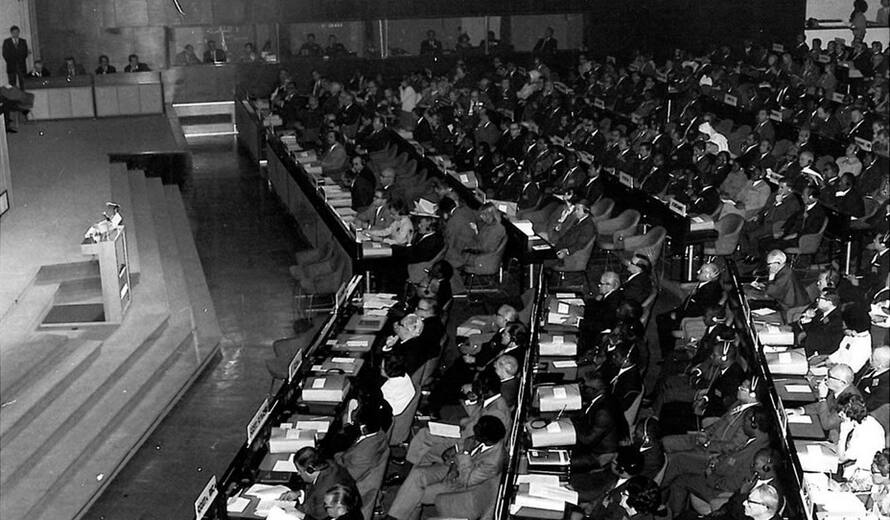#CLST6 #CYO4 #Ethics I listened to another Arch&Anth podcast interview (I really do love them!) with Pierre Losson. Interestingly, Pierre is not an archaeologist. He's actually a political scientist who approaches archaeological problems through a geopolitical lens.
Pierre was on the podcast to talk about many things: cultural heritage, the 3 R's (will explain soon), nationalism, cultural policy, UNESCO and Indigenous communities.
When Pierre first started researching the history of return claims on displaced cultural heritage objects from various countries around the world he was looking at the issue from a purely legal perspective.
He grew frustrated with the legal side of things as he began to realize that the problem with looking at this issue from a legal perspective is that it neglects to explain why these countries want a return of their cultural heritage. Thus, he turned to political science.
Before explaining any of his research, Pierre first laid out the definition of the 3 R's: repatriation, restitution, and return.
Restitution applies to clear legal cases of objects that were displaced AFTER the implementation of international conventions.
Restitution applies to clear legal cases of objects that were displaced AFTER the implementation of international conventions.
You'll remember from our in-class debate on "Who owns culture?" that the most famous of these international conventions is the UNESCO convention (1970).
It was really the first time that States were formally urged to take measures to prohibit/prevent illicit trafficking of cultural property.
As Mr. Losson says in his interview, you can definitely break the timeline of archaeological work into pre and post 1970.
As Mr. Losson says in his interview, you can definitely break the timeline of archaeological work into pre and post 1970.
Repatriation (i.e. the return of the object to its nation or community or provenance) is most often in cases of objects being returned to native or indigenous communities.
Usually it’s museums from the same country as the native/indigenous community that make these returns.
Usually it’s museums from the same country as the native/indigenous community that make these returns.
Pierre's research centers around objects that were taken from their countries of provenance LONG before 1970. He specializes in Latin American studies and specifically focuses on a series of 6 return claims of cultural heritage artifacts from Mexico, Peru, & Colombia.
Latin American States really only began to show interest in return claims in the last 2 decades of the 20th century, so many people like to ask the question, "Well, why do these countries want their artifacts back now?"
Pierre had a very long response to this question. He began by noting that Latin American countries only became independent around the 1820s. In many ways, they had a lot of trouble consolidating their role as a state.
In Latin America, criollos (you probably know it as the French "creole") were people of European origin born in the Americas. For decades after Columbus's invasion, it was the criollos who were largely in command of Latin American countries (not indigenous communities!).
Heritage became more and more important over time because it offered a way of integrating everyone (Europeans, criollos, indigenous & native communities) into a larger concept of the nation.
Heritage also became more and more important as a tool for creating links with an oftentimes glorious past... just think of the Imperial powers in existence at the time of the conquests (Incas in Peru, Aztecs in Mexico, etc.).
Finding a sense of common origin in the glorious pre-Columbian past became a way of trying to unify a nation in Latin America. Hence, the very concept of heritage.
There's a lot of ethics or lack thereof tied into the interactions that surround cultural heritage objects. Many people, as Pierre pointed out, are just careless in the way they talk about and approach these issues.
Many of the most patronizing arguments for not returning these items come from (no surprise here) Europe and North America. They'll say things like "developing countries" don't have the capacity to care for their heritage objects.
Or they'll make a weak attempt at a slippery slope argument. "If we send one artifact back then..." Mr. Losson was particularly offended by this rhetoric, citing that Latin American countries clearly don't want ALL of their objects back for a variety of reasons:
1.) Their museum warehouses are already full of artifacts waiting for analysis.
2.)People in these countries are conscious of the important role of western museums. They do realize that a lot of these objects would’ve been destroyed otherwise.
2.)People in these countries are conscious of the important role of western museums. They do realize that a lot of these objects would’ve been destroyed otherwise.
& 3.)They also realize that these objects play a role of promoting their country.
My biggest takeaway form Pierre is that archaeology needs a HUGE revamp when it comes the handling pre-1970 return claims.
My biggest takeaway form Pierre is that archaeology needs a HUGE revamp when it comes the handling pre-1970 return claims.
Additionally, we need #Ethics stop the spread of fallacies promulgated by western museums to avoid returning a few, really important cultural heritage objects to their rightful homes.
Citations (info & images):
Arch&Anth Podcast "Episode 109: What social, legal and political factors determine whether returns of a cultural heritage object take place?" https://archandanth.com/episode-109-interview-with-pierre-losson/ https://en.unesco.org/fighttrafficking
Arch&Anth Podcast "Episode 109: What social, legal and political factors determine whether returns of a cultural heritage object take place?" https://archandanth.com/episode-109-interview-with-pierre-losson/ https://en.unesco.org/fighttrafficking

 Read on Twitter
Read on Twitter



